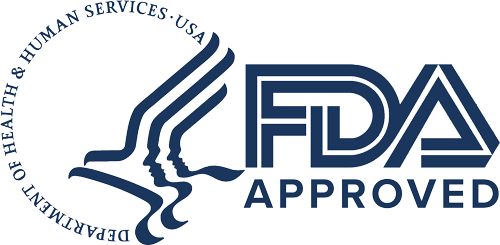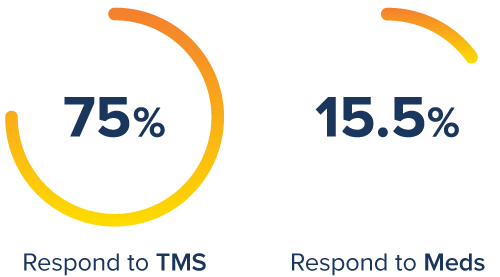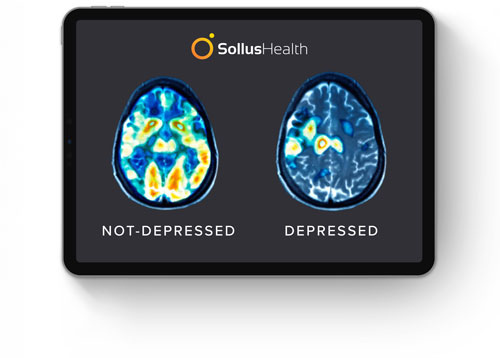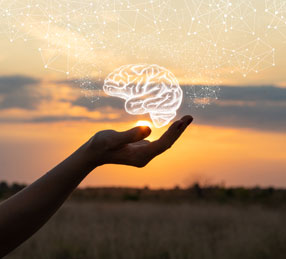TMS and Long Term Relief





BREAKTHROUGH TECHNOLOGY
Unlock Lasting Relief from Depression
TMS therapy offers a non-invasive, drug-free approach to treating depression and other mental health conditions.
-
Covered by Insurance
-
FDA Approved
-
Covered by Insurance
-
FDA Approved

TAKE THE FIRST STEP TODAY
TMS Covered by Major Insurance Companies

RESPONSE RATES
TMS Versus Medication

NEUROPLASTICITY
Brain Activity Increased with TMS

Proudly Serving San Diego Carlsbad Encinitas Oceanside San Marcos Vista
Break free from depression
Our team is here to guide you through a personalized journey to reclaim your mental health and regain control of your life.






For those struggling with chronic mental health conditions like depression, anxiety, or PTSD, finding lasting relief can feel like an uphill battle. While traditional treatments such as medications or talk therapy can help, they don’t always provide the sustained results patients need. That’s where TMS therapy in San Diego stands out. This innovative, non-invasive treatment offers long-term relief by targeting the brain directly, providing hope for individuals who haven’t responded to other treatments.
What is TMS Therapy?
Transcranial Magnetic Stimulation (TMS) is a non-invasive treatment that uses magnetic pulses to stimulate underactive areas of the brain responsible for mood and emotions. Unlike medications that work chemically, TMS treatment works at the neurological level, directly improving brain activity. This targeted approach has made it a leading option for conditions like depression treatment, anxiety treatment, and even OCD treatment in San Diego.
How TMS Provides Long-Term Relief
One of the most impressive benefits of TMS therapy is its ability to create lasting changes in the brain. It works by enhancing neuroplasticity, the brain’s ability to adapt and form new connections. Over time, this rewiring of the brain’s pathways helps maintain improved mental health, even after the therapy sessions have ended.
Patients seeking PTSD treatment or ADHD treatment in San Diego often notice that their symptoms don’t just temporarily fade—they experience long-term improvement. This is because TMS doesn’t just mask the symptoms but addresses the root causes by reactivating underperforming brain regions.
Why Choose TMS Over Other Treatments?
While traditional treatments like medications and psychotherapy can help, they often fall short for individuals with treatment-resistant conditions. Medications can lose their effectiveness over time, require constant adjustments, and come with side effects like weight gain or fatigue.
In contrast, TMS therapy provides a medication-free solution with minimal side effects. It is also a faster treatment option compared to therapies that may take months to show results. For many, the effects of TMS are long-lasting, making it an excellent choice for patients looking for sustained relief.
Conditions TMS Can Address for Long-Term Benefits
- Depression Treatment– TMS helps individuals with treatment-resistant depression achieve lasting relief.
- Anxiety Treatment– By calming overactive brain regions, TMS reduces symptoms of anxiety for extended periods.
- OCD Treatment– Patients experience long-term reductions in compulsive behaviors.
- PTSD Treatment– TMS provides relief by reactivating brain areas affected by trauma.
Chronic Pain Treatment– TMS also offers lasting benefits for individuals managing physical conditions like chronic pain and migraines.
Experience Long-Term Relief with TMS Therapy in San Diego
If you or your loved one is struggling with a mental health condition and seeking a non-invasive, drug-free option, Sollus Health’s TMS therapy in San Diego may be the right choice. Our dedicated team is here to support you every step of the way, providing effective, compassionate care that empowers you to regain control of your mental health.
Contact Sollus Health today to learn more about TMS therapy and start your journey toward lasting symptom relief. Let us help you experience the benefits of advanced TMS treatment in San Diego, and discover a path to renewed mental clarity, emotional stability, and a fulfilling life.
YOUR QUESTIONS ANSWERED
FAQs About TMS Therapy



Can't find what you're looking for? Get in touch with our team and we will gladly help out.
Transcranial Magnetic Stimulation (TMS) is a non-invasive procedure used to stimulate nerve cells in the brain using magnetic fields. It is primarily employed in the treatment of depression, particularly in cases where traditional treatments like medication or psychotherapy have been ineffective
Transcranial Magnetic Stimulation (TMS) works by using magnetic fields to stimulate specific regions of the brain involved in mood regulation, particularly the prefrontal cortex, which is often underactive in individuals with depression. The magnetic pulses generated during TMS induce electrical currents in the brain, which can modulate neuronal activity. This stimulation helps to "retrain" the brain's neural circuits, improving communication between different regions that regulate emotions and cognitive function. Over time, repeated stimulation can promote neuroplasticity, allowing the brain to reorganize itself and function more effectively. This increased neural activity is believed to alleviate symptoms of depression and other mental health conditions.
TMS has been shown to be highly effective, particularly for treating major depressive disorder (MDD), especially in patients who do not respond well to antidepressants or psychotherapy. Clinical studies suggest that around 80% of patients experience significant improvement in their depressive symptoms, and about 50% achieve full remission.
TMS therapy is generally well-tolerated and considered a comfortable procedure for most patients. During the session, an electromagnetic coil is placed on the scalp, and patients feel a tapping sensation or mild knocking on the head as the magnetic pulses are delivered. Some people may also experience slight discomfort or tingling at the treatment site, particularly in the first few sessions, but this usually lessens over time. There may be an audible clicking sound as the machine operates, and patients often wear earplugs to reduce any noise-related discomfort.
TMS is generally well-tolerated, with most side effects being mild and temporary. The most common side effect is discomfort or mild pain at the treatment site, particularly during the first few sessions, which usually decreases as the scalp becomes accustomed to the stimulation.
A typical course of TMS therapy lasts about 4 to 6 weeks, with patients receiving treatment five days a week. Each session generally lasts between 20 to 40 minutes, depending on the specific protocol being used and the individual's condition
TAKE THE FIRST STEP TODAY
A Simple Process to Begin Your TMS Journey
Take the first step toward lasting relief from depression with TMS therapy, a non-invasive, medication-free treatment designed to restore your well-being.
Break free from depression
Our team is here to guide you through a personalized journey to reclaim your mental health and regain control of your life.
